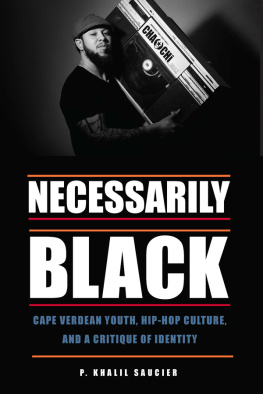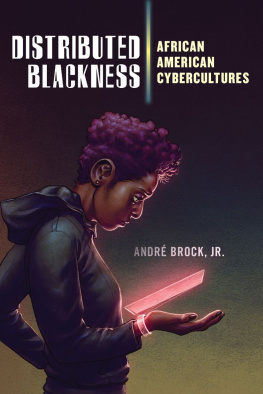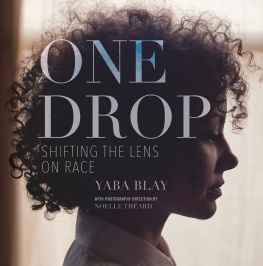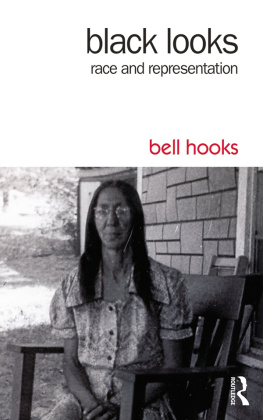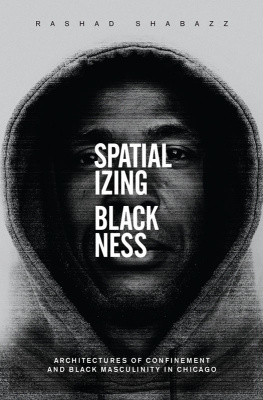POSTHUMAN BLACKNESS and the BLACK FEMALE IMAGINATION
POSTHUMAN BLACKNESS and the BLACK FEMALE IMAGINATION
Kristen Lillvis

2017 by the University of Georgia Press
Athens, Georgia 30602
www.ugapress.org
All rights reserved
Designed by Kaelin Chappell Broaddus
Set in 9.5/14 Quadraat Regular by
Graphic Composition, Inc.
Most University of Georgia Press titles are available from popular e-book vendors.
Printed digitally
Library of Congress Cataloging-in-Publication Data
Names: Lillvis, Kristen.
Title: Posthuman Blackness and the Black female imagination / Kristen Lillvis.
Description: Athens : The University of Georgia Press, [2017] | Includes bibliographical references and index.
Identifiers: LCCN 2016056620| ISBN 9780820351223 (hardback : alk. paper) | ISBN 9780820351230 (ebook) Subjects: LCSH: American literatureAfrican American authorsHistory and criticism. | American literatureWomen authorsHistory and criticism. | American literature21st centuryHistory and criticism. | American literature20th centuryHistory and criticism. | Performing artsUnited StatesHistory21st century. | Performing artsUnited StatesHistory20th century. | African AmericansIntellectual life21st century. | African Americans Intellectual life20th century. | Future, The, in literature.
Classification: LCC PS153.N5 L58 2017 | DDC 810.9/928708996073dc23
LC record available at https://lccn.loc.gov/2016056620
CONTENTS
CHAPTER 1
Temporal Liminality in Toni Morrisons Beloved and A Mercy
CHAPTER 2
Posthuman Solidarity in Sherley Anne Williamss Dessa Rose
CHAPTER 3
Afrofuturist Aesthetics in the Works of Erykah Badu, Janelle Mone, and Gayl Jones
CHAPTER 4
Posthuman Multiple Consciousness in Octavia E. Butlers Science Fiction
CHAPTER 5
Submarine Transversality in Texts by Sheree Rene Thomas and Julie Dash
ACKNOWLEDGMENTS
I am grateful to the many people who made this project possible.
Thank you to the group of strong women who have served as my mentors: Giselle Liza Anatol, Kathryn Conrad, Doreen Fowler, Maryemma Graham, Susan K. Harris, and Jane Hill. Your scholarship and fellowship inspire me.
Thanks also to those individuals who read earlier incarnations of this project or otherwise provided helpful advice: Lisa Yaszek, L. Ayu Saraswati, Susan Gubar, Molly Fuller, Robert Miltner, and Amy Sherman. Thank you to the wonderful team at the University of Georgia Press, including Walter Biggins, Jordan Stepp, David E. Des Jardines, Thomas Roche, and Sue Breck-enridge, for your careful attention to my manuscript.
I am grateful to my professors at Baldwin-Wallace College, Ohio University, and the University of Kansas, and to my colleagues at Marshall University, especially those in the Department of English, Honors College, and Center for Teaching and Learning. For their especially generous and important contributions, I would like to thank Johnnie Wilcox, Kelli Prejean, Anna Rollins, Laura Sonderman, Daniel OMalley, Hilary Brewster, Jill Treftz, and Kristin Steele. I am also appreciative of the friends and colleagues I have written alongside throughout the duration of this project, including Lindsey Harper, Zelideth Mara Rivas, Dawn Howerton, Robert Ellison, Cody Lumpkin, Sarah A. Chavez, Walter Squire, Amy Ash, Gaywyn Moore, Alicia Sutliff-Benusis, Ali Brox, and Heather Bastian. Several other individuals have talked through this project with me; I am particularly indebted to Kent Shaw, Carrie Oeding, Allison Carey, and Eric Smith.
My ideas for this project developed during conversations at several conferences, including the Octavia Butler: Celebrating Letters, Life and Legacy Conference (2016), the Midwest Modern Language Association Conference (2016, 2015, 2014, 2012), and the American Literature Association Conference (2014). Special thanks to the students who participated in my undergraduate Honors College seminars, Technology and the Evolution of Human Identity, and Robots, Aliens, and Black Speculative Fiction, as well as my graduate seminar, Posthuman Theory. I would especially like to acknowledge Andrew Johnston, Amber Wright, Zachery Rakes, Nathan Rucker, Steven Smith, Erica Law, and Michelle Hogmire. Extra thanks to Amber for lending her proofreading skills to the project and to Andrew for aiding me in my research on Afrofuturism.
An earlier and shorter version of appeared as Becoming Self and Mother: Posthuman Liminality in Toni Morrisons Beloved in Critique: Studies in Contemporary Fiction 54.4 (2013). Portions of my research were supported by the West Virginia Humanities Council and Marshall Universitys College of Liberal Arts.
This project exists because of the encouragement of family and friends: Sue Lillvis, Dean Lillvis, Joshua L. Lillvis, Katie Egging, Matt Egging, Sarah B. Hickerson, Julie Severino, Mallory Carpenter, Jessica Anderson, Craig Bantz, Lauren Kiehna, and Jana Tigchelaar. I am thankful for the care, comfort, and, when needed, distractions you provided. Thank you for everything.
Finally, I could not have begun theorizing on race, gender, and posthumanism were it not for the writers and theorists who have paved the way: Octavia E. Butler, Toni Morrison, Hortense Spillers, Sylvia Wynter, bell hooks, Peggy McIntosh, Alexander G. Weheliye, and Kodwo Eshun. I am honored to have the opportunity to highlight your work.
POSTHUMAN BLACKNESS and the BLACK FEMALE IMAGINATION
INTRODUCTION
In her mixed media collage Do Androids Dream of How People Are Sheep? (2010), Krista Franklin superimposes images of animals, plants, and machines onto a photograph of a black woman in profile. A tigers torso defines the womans forearm, while an iris encircles her upper arm. A motor fills part of her semi-transparent breast. Additional itemsseveral raspberries, a bucks headhelp to constitute the womans skin, muscles, or bones. These magazine cutouts evoke historical and contemporary conceptions of the black woman as fighter, mother, and laborer, while other pictures, including watchband links near her heart and a vault handle at her elbow, propel the woman forward into a technophilic future. Like the cyborgs of Philip K. Dicks Do Androids Dream of Electric Sheep.> (1968)the science fiction novel from which the collage derives its namethe woman of Franklins piece defies easy categorization. Both human and nonhuman, subject and object, artifact and prophet, she conveys an identity as intricate as the white lace background against which her image rests.
By blurring the boundaries of human, animal, plant, and machine in her art, Franklin points to not only the womans complexity but also her ubiquity: she encompasses all states of existence, shaping and being shaped by what surrounds her. The Boss fashion label at the crook of her elbow, for instance, suggests the reflexive relationship between women of color and the clothing industry, a mutually constitutive association that extends from fashion houses to manufacturing plants. In the fashion world, African American designer Tracy Reese has garnered media attention for dressing First Lady Michelle Obama at the Democratic National Convention in 2012, and British designer Carly Cushnie, whose parents hail from Jamaica, and her Canadian design partner, Michelle Ochs, of German and Filipino heritage, have received acclaim for outfitting such stars as Alicia Keys, Salma Hayek, and Reese Witherspoon (Adams). Despite the success of these style makers, laborers of color face unfair and unsafe working conditions in the United States and abroad. American retailers employ black workers in more low paid cashier positions and fewer supervisory roles [] relative to [their] white counterparts (Dayen), while apparel companies have named Ethiopia a top sourcing destination for garment manufacturing due to cheap labor and inexpensive power, a combination that in some countriesBangladesh, for examplehas led to worker exploitation and even to death (Passariello and Kapner; Jamieson, Hossain, and Bhasin). Representative of the diverse yet interconnected roles women of color occupy in the clothing industry, the Boss label affixed to the black woman in
Next page

